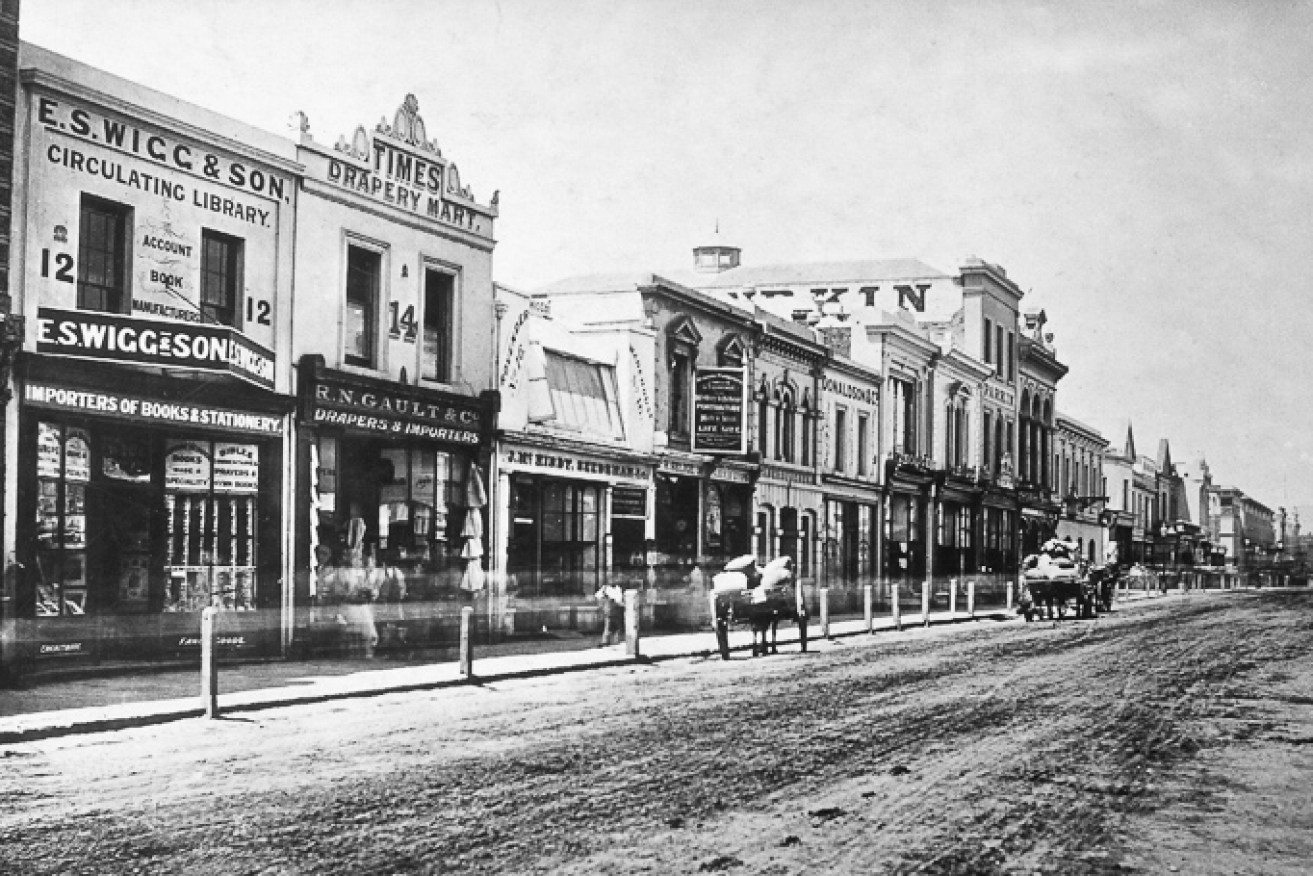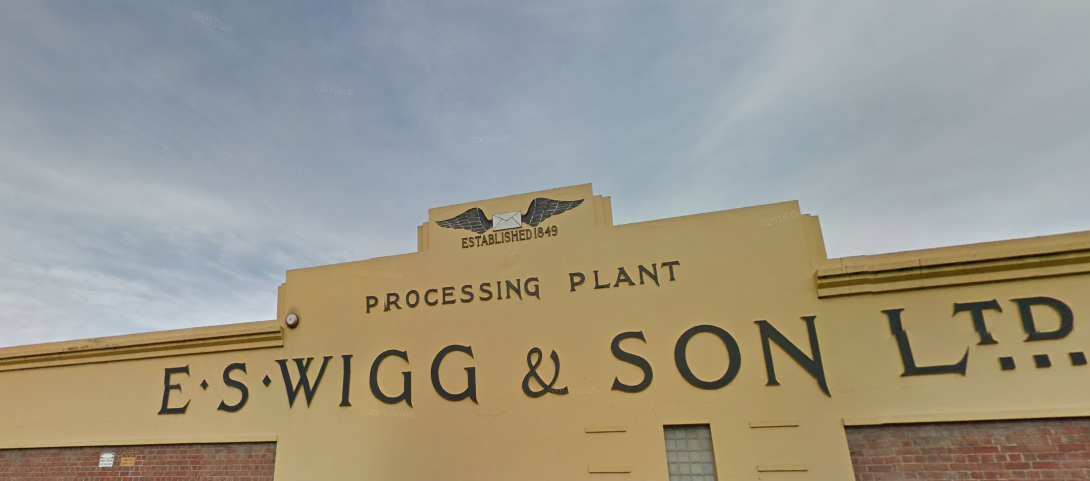End of an era for one of SA’s oldest companies
One of Adelaide’s oldest companies – ES Wigg & Son – has sold its core manufacturing business, signalling the end of an era for the family enterprise that first opened its doors in 1849.


ES Wigg & Son's first premises, on Rundle Street near the Beehive Corner.
The company has been manufacturing envelopes for more than a century but has sold that part of the business to New Zealand company, Candida Stationery.
Candida will continue to manufacture envelopes in Adelaide, but about 20 of the 60 Wigg employees will be made redundant.
The future isn’t clear for ES Wigg & Son which says it will now “re-invent itself” and enter another business or industry.
Envelope manufacturing had become Wigg’s entire business after it sold its retail stationery operations a decade ago.
The current manufacturing plant on Port Road, Thebarton, has been sold to a developer, with settlement due later in the year.
Candida will operate in the historic premises for several months after it takes over at the end of June, but will shift the operations to a smaller plant elsewhere.
ES Wigg & Son managing director Tom Davidson, the fifth generation of his family to work in the business, said increased competition and falling Australia Post mail volumes had led to the decision.
“It’s sad we will be leaving this industry, but we’re hoping to invest in another business or industry in the near future,” Davidson told InDaily.
“Up until 10 years ago, most Adelaideans would have known us as a stationery company. With the advent of Officeworks and things like that, the market become very crowded.”
As a result, it sold its city retail premises to WC Penfolds about 10 years ago, and since then it has focused on envelope production at Thebarton.
“For all intents and purposes, envelope manufacturing is our business,” Davidson said.
The top of Port Road has become an attractive site for new development after the State Government rezoned the section of the key corridor facing the parklands.
ES Wigg & Son were offered the right price by a developer for the historic site, which boasted SA’s first “saw tooth” roof when the plant opened in 1904.
“We looked at a relocation and it quickly became apparent that we would struggle long-term,” said Davidson. “The envelope industry isn’t what it was.”

The facade of the ES Wigg & Son premises on Port Road.
The next link in the chain was the offer of a “fair price” for the envelope business from Candida, a family company like ES Wigg & Son.
The ES Wigg & Son shareholders – bar one – are members of the family, and they will spend the next six months considering their next steps, about which they have a “totally open mind”.
“The parent company will continue in the future – we’re not sure what we will do,” Davidson said.
“We want to remain in South Australia and, hopefully, continue to employ South Australians.
“It was quite an emotive decision to sell the business, but we’re confident it was the right one.”
While he was disappointed that some of the current staff will lose their jobs, he believed more people would have ended up jobless if the company hadn’t taken Candida’s offer.
“The reality is that the redundancy might have been a lot more in a year or two in any case,” he said.
“At the end of the day, it has been a difficult decision but we believe the time is right.”
The company has had to re-invent itself on several occasions over its 167-year history.
In the very beginning, founder Edgar Smith Wigg first offered books and homeopathic medicines.
ES Wigg & Son historic timeline
1849: Edgar Smith Wigg started selling books and homeopathic medicines in Adelaide, before expanding into account books, educational supplies and sportsware through the 1850s.
1871: Edward Neale Wigg, Edgar’s son, marries Janet Davidson.
1873: William Davidson joins the company from England.
1880: E.S. Wigg retires from the business.
1885: William Davidson marries Mary Wigg, 3rd child of E.S. Wigg.
1899: E.S. Wigg dies at the age of 81.
1901: William Davidson purchases and installs the first envelope machine in South Australia.
1902: Land is purchased in Thebarton, where manufacturing still takes place to this day.
1910: The partnership between Edward Wigg and William Davidson is dissolved, with the Wigg interest sold to the Davidson family.
1924: William Davidson dies, age 72. Hugh Davidson becomes Managing Director.
1964: Hugh Davidson dies, age 70. David Davidson becomes Managing Director.
1969: Melbourne sales office opens to serve customers including Kodak.
1972: Sydney sales office opens to serve customers including Reader’s Digest.
1987: Brisbane sales office opens, giving the company a presence in five states.
2003: David Davidson retires to become Chairman of the Board. Tom Davidson becomes new and present Managing Director.
2009: ES Wigg & Son celebrates 165 years as a family-owned manufacturing company.




